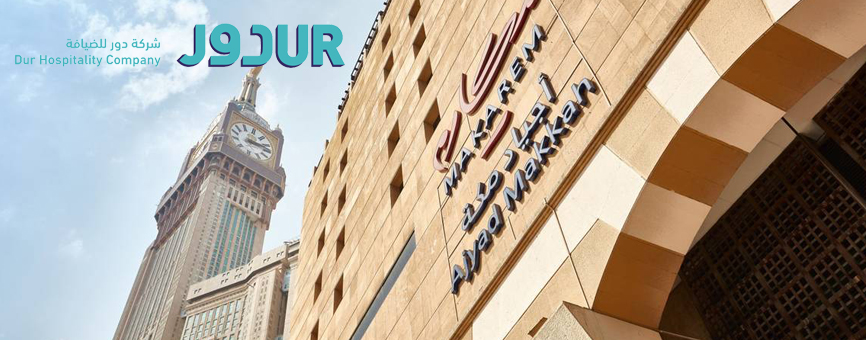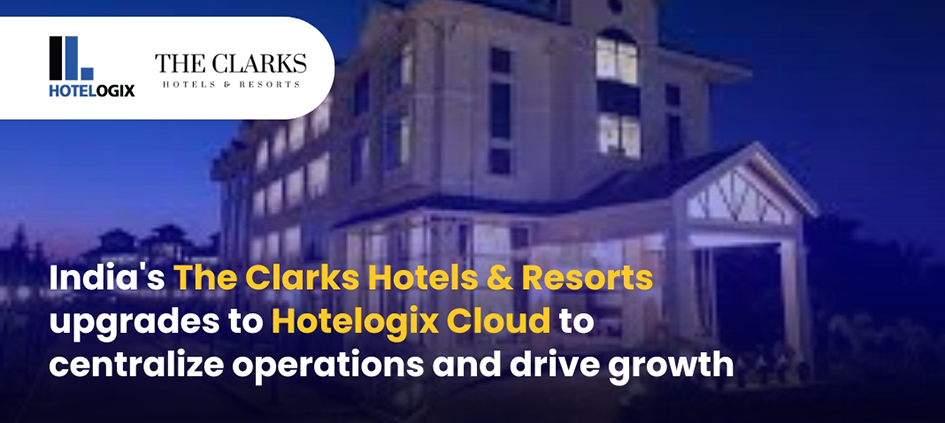

Amidst implementing a new visa scheme, dedicated support for private sector businesses, and an array of initiatives – Saudi Arabia is on an unwavering mission committed to pursuing its ambitious goals for the travel and tourism sector. At the forefront of this journey stands Dur Hospitality, a leading Saudi hospitality company recognized for its track record in developing, managing, and operating hotels. It plays a pivotal role in driving growth for the kingdom’s rapidly expanding tourist sector.
We had the opportunity to discuss with Hassan Ahdab, President of Hotel Operations, and Adam Salem, Commercial and Digital Director at Dur Hospitality, who provided us with valuable insights into their strategic approach that combines rapid decision-making and integrating innovative tools. Notably, they focused on Atomize RMS‘s instrumental contributions to Dur’s success story during this profound transformation and dynamic growth era.
Ambitious goals for tourism in Saudi Arabia
The Kingdom of Saudi Arabia continues to make headlines with its bold Vision 2030, outlining the transformative goals for the country’s development. With a core emphasis on economic diversification, emerging sectors like tourism and hospitality garner significant attention, backed by substantial funding and government support. If all unfolds as intended, tourism should generate 10% of the Kingdom’s GDP by 2030 – an impressive surge from only 3% in 2022.
In a notable move, the eVisa scheme was one of the first major initiatives rolled out towards the end of 2019, with a staggering 77,000 visas being issued in the first month of its inception. On top of this, extensive marketing campaigns and collaboration between private and public stakeholders to expand the country’s tourism infrastructure are already bearing fruit. With this momentum, the ambitious goal of attracting 100 million inbound visitors annually by 2030 is well within reach.
Challenges and opportunities in times of great change
The intense push to propel Saudi Arabia’s tourism sector has created rampant expansion of the luxury hospitality market. “We’re witnessing a drastic upsurge in demand from new tour operators and individual travelers. At the same time, the supply is growing dramatically since many international brands are quickly expanding their local footprint,” says Hassan.
This influx of fresh entrants into the marketplace brings both challenges and opportunities. “Finding the right talent to help us navigate these times is critical,” he elaborates. “However, given that all hospitality businesses share the same mission, that’s not always easy.
Drawing upon its extensive hospitality legacy, Dur strategically tapped several new source markets to boost its tourist footfall. Here, Hassan is optimistic: “As we chart new pathways to growth, we’re focusing on global services footprints in the US, China, and a few other important new markets. Our adept teams are proactively immersing themselves in understanding and meeting the demands of these clients. Embracing this challenge expands our horizons and empowers us to tailor our offerings to align with our new clients’ distinct expectations seamlessly.”
Looking ahead, Adam emphasizes this commitment to Adaptability, stating: “Given the rapidly evolving hospitality industry in Saudi Arabia, trends are constantly emerging and shifting. We can swiftly adapt through innovative approaches, seizing new opportunities as they unfold.”
Stronger focus on the online marketplace
Due to lockdowns and curfews, there was a notable surge in e-commerce in Saudi Arabia. Top online retailers reported a 200% growth in sales and a 50% boost in average order values. This trend has also translated into the hospitality sector. Within this context, guests have become more accustomed to digital transactions and communication.
Nevertheless, Hassan underscores the indispensable value of in-person exchanges:
“While the transition to online platforms has undeniably altered the landscape, shifting everything online has resulted in a loss of genuine human interaction. It’s crucial, particularly within the hospitality industry, to acknowledge that even in an era of digital research and reservations, the quest for an exceptional in-person experience remains paramount for travelers seeking an authentic real-life experience. At Dur Hospitality, we believe that the strategic incorporation of technology should support the interaction with our guests and help us elevate their experience, all without compromising the cherished genuine connection we value.”
In their pursuit of an impeccable guest experience, Hassan and his team consistently remain updated on the latest tools:
“Our core focus is to satisfy our clients. That’s why we keep exploring new tech solutions and ways to refine our services.”
Priorities in a dynamic environment
With the market evolving so rapidly, agility and flexibility are critical. “After some time, things will balance out. But for now, we must be ready for market shifts at any moment,” Hassan states.
This entails anticipating periods of high and low demand, understanding competitors’ strategies, and selecting the right distribution partner for every situation.
“Today’s revenue managers must be more alert even to minor market shifts. For this, they need a reliable system to back them up so they can take advantage of every new development,” Hassan continues. This realization led him and Adam to search for a Revenue Management System (RMS) that could provide appropriate pricing recommendations, even when faced with challenging circumstances.
Leveraging an RMS to maximize results in unprecedented circumstances
Just like in most other markets, the pandemic caused drastic changes in booking trends in Saudi Arabia.
“At the start, I wasn’t sure if an RMS could give appropriate suggestions in such an uncertain situation. After all, the usual historical data didn’t apply for predicting demand, and there weren’t any reliable booking patterns for an RMS to use,” Adam admits.
However, the team found staying abreast with the constant changes challenging.
“There were moments when we had to revise our forecasts multiple times a day due to sudden shifts in demand caused by changing government regulations. Keeping track of all this and manually making the needed updates was not feasible in the long run. That’s when we decided to seek out a system that could assist us during such times,” Adam says.
To this end, Dur Hospitality team sought an RMS that could provide a reliable forecast and support their decision-making process. Atomize was an ideal fit as it utilizes real-time future markets since it leverages live forward-looking market and demand data to make pricing recommendations. This enables the system to instantly respond to shifts and make the most of every new development.
“We needed an RMS that would effectively function in our fast-changing environment. Atomize is the ideal solution because it helps us identify new opportunities and make well-informed, rational pricing decisions,”Adam explains.
On top of that, Hassan lauds the flexibility Atomize brings to the table:
“Whenever we have inquiries or require new functions, we can count on the team. They’re consistently helpful, providing us the tailored support we need.”
Embracing total hotel revenue management
As the market evolves and guest expectations shift, Dur Hospitality is transitioning from traditional revenue management to a more holistic approach.
“The hotel experience extends far beyond rooms and suites. It includes F&B, recreation, banqueting, and numerous other elements that collectively shape the guest’s journey. That’s why we’ve also extended the revenue management principles to other departments. Instead of just focusing on RevPAR, we’re crafting strategies and making big-picture decisions that boost our TRevPAR to allow us to capitalize on our industry’s growth fully,” Hassan concludes.







